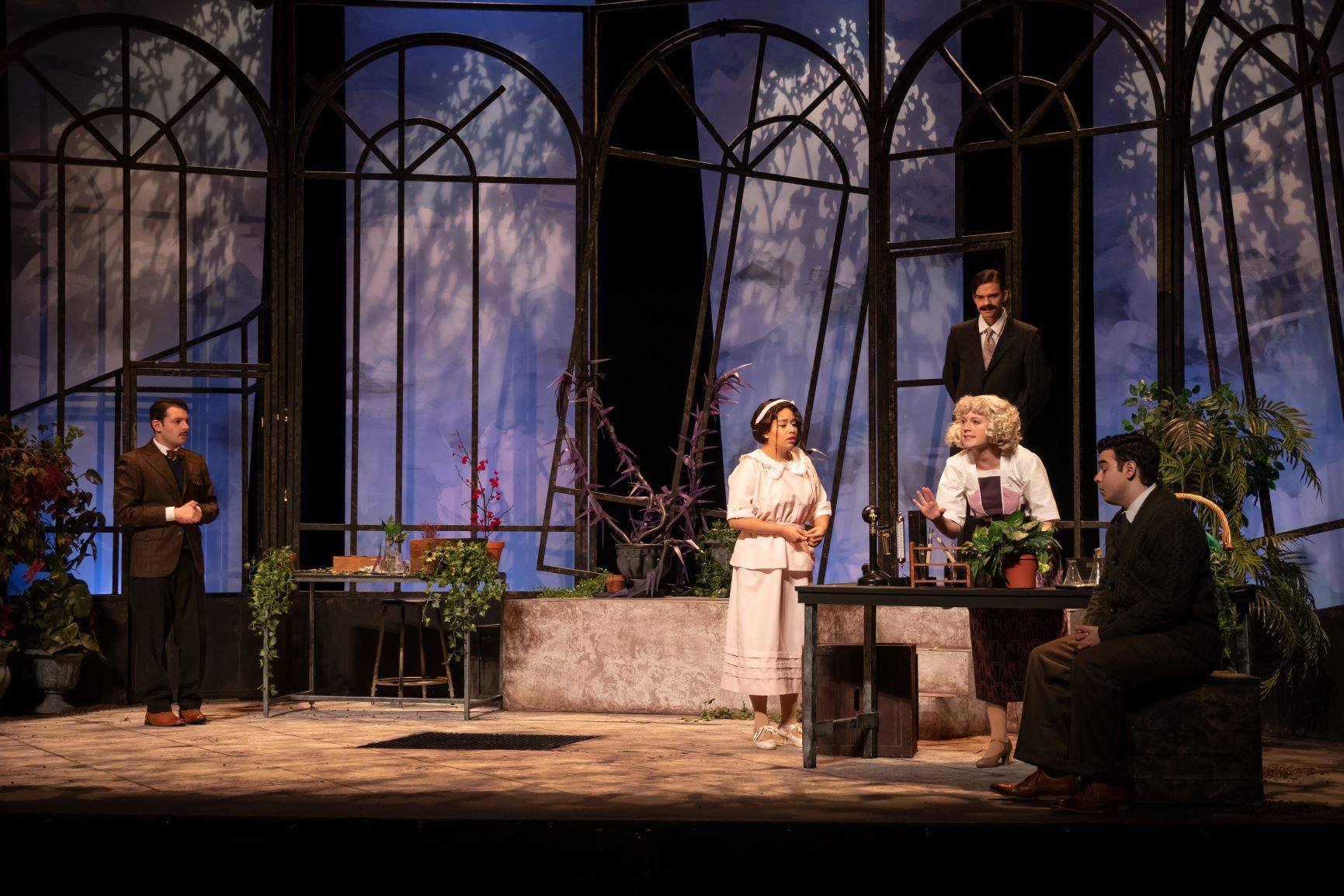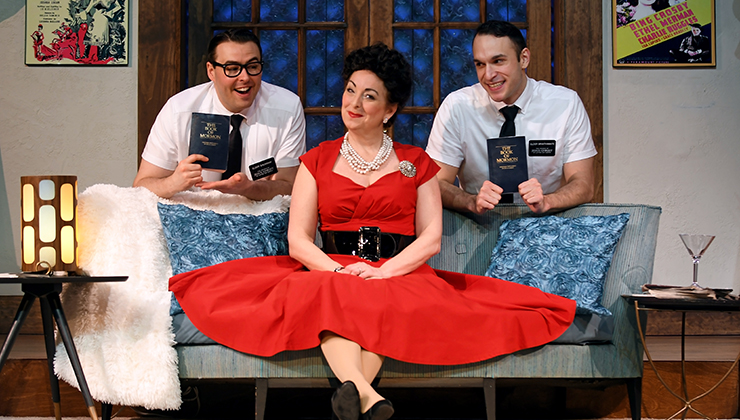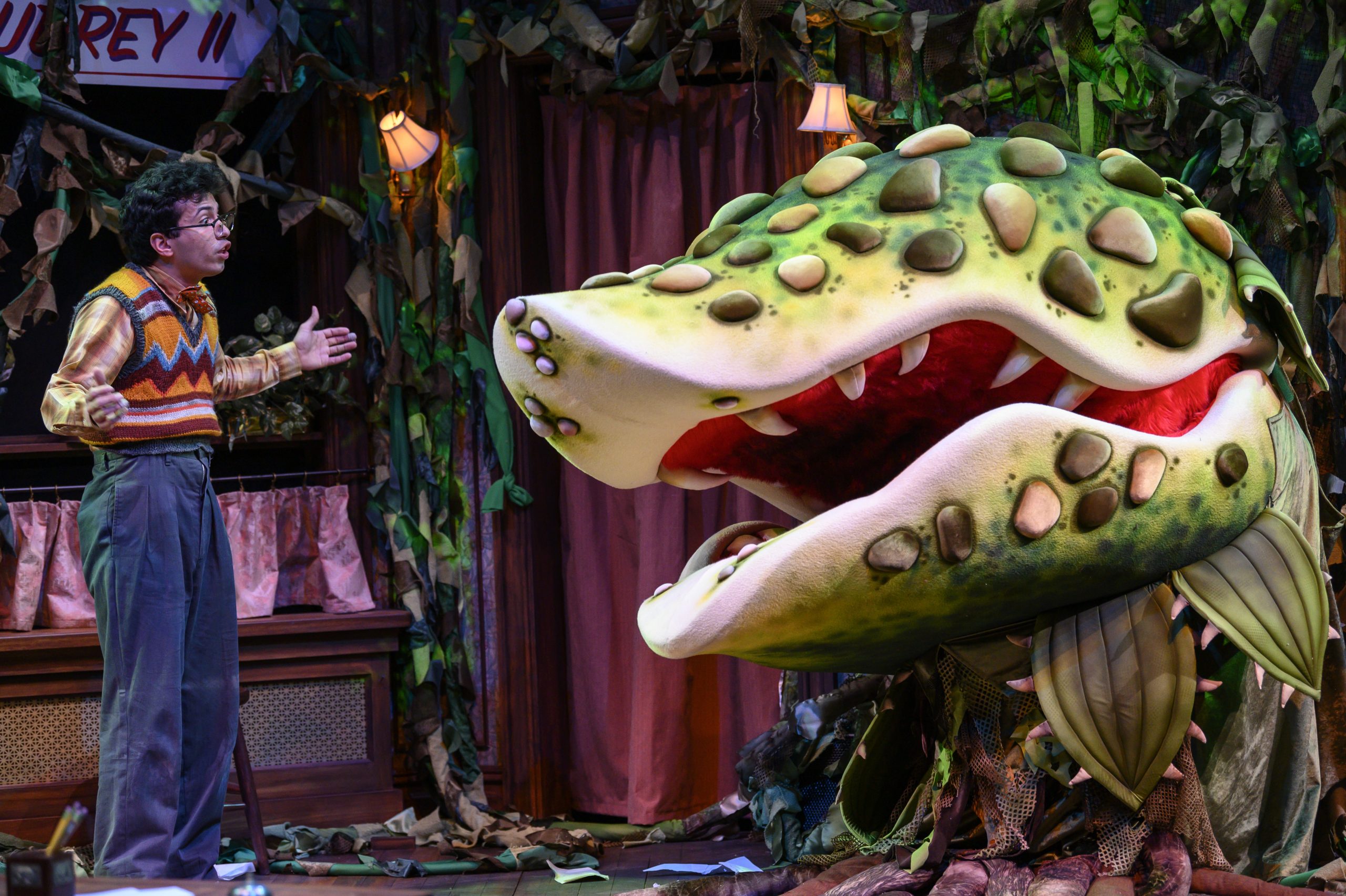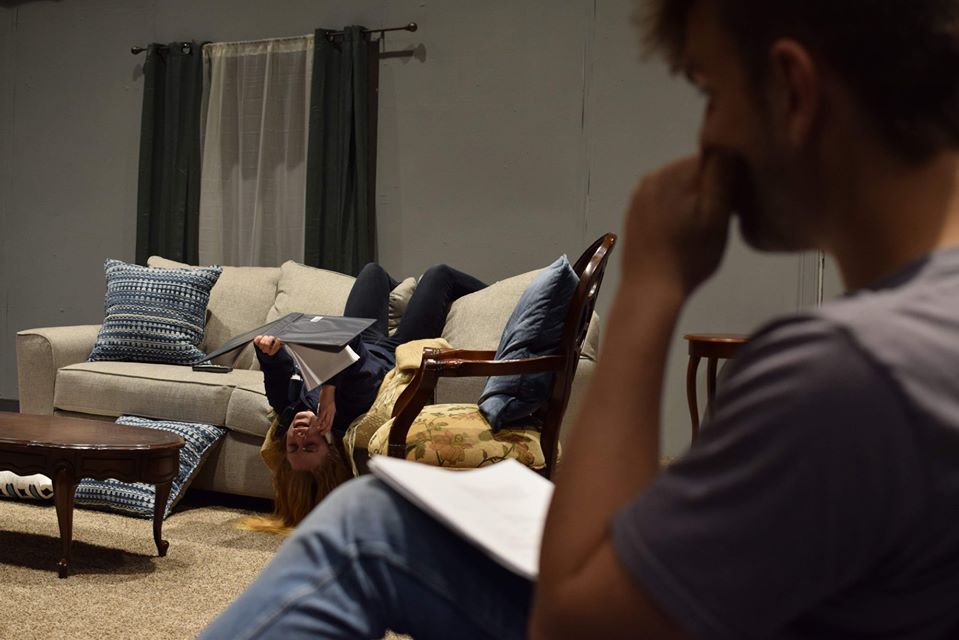By Michael Buzzelli
When S-Mart employee, Ashley “Ash” Williams (Brett Goodnack) and his friends stumble upon a demonic book, the Necronomicon Ex-Mortis, all hell, literally and figuratively, breaks loose. Once Ash and his cohorts unleash an army of darkness, blood will run in “Evil Dead – the Musical.”
Blood doesn’t just run. It practically gallops! If you’re in the “Splatter Zone,” blood will rain down on you like a biblical apocalypse.
The play starts out in Beach Blanket Bingo mode as Ash and his girlfriend Linda (Micaela Oliverio), his sister Cheryl (Laura Barletta), his friend Scott (Brecken Newton Farrell) and Scott’s plus one, Shelly (Callee Mile) bop along joyfully to a cabin in the woods, unaware that evil awaits them.
The cabin belongs to the recently-deceased Professor Kownby (Gavin Carnahan). For the record, Ash didn’t rent the cabin. It isn’t a B & B, but more of a B & E situation (Penal Codes 459 and 601). He discovers the place and takes over a la Christopher Columbus.
The weird noises start as soon as they enter the dreaded building. Cheryl wants out immediately, but Scott – who puts the toxic in toxic masculinity – labels her a killjoy (with more vulgar vernacular). Ash, in an attempt to placate his sister, heads down to the basement to find the source of the strange noises. Ash and Scott find the Darkhold Necronomicon.
Sidenote: The Darkhold is the evil book in a different Sam Raimi movie. Raimi must have the devil’s library card.
The evil tome is found next to a tape recorder. Once the intrepid kids press play, Knowby dollops out portions of staticky exposition as a “recorded voice.” The book’s translations, even via recorder, cause the evil to be unleashed.
Meanwhile, Knowby’s daughter Annie (Callie Miles again) has found two important pages of the Necronomicon and plans to get the excerpts to her dad. She and her boyfriend Ed (Joseph Fedore) rush off to the cabin. On the way, they run into Jake (Charlie Thomson), who knows a secret path to the cabin when the access bridge is destroyed.
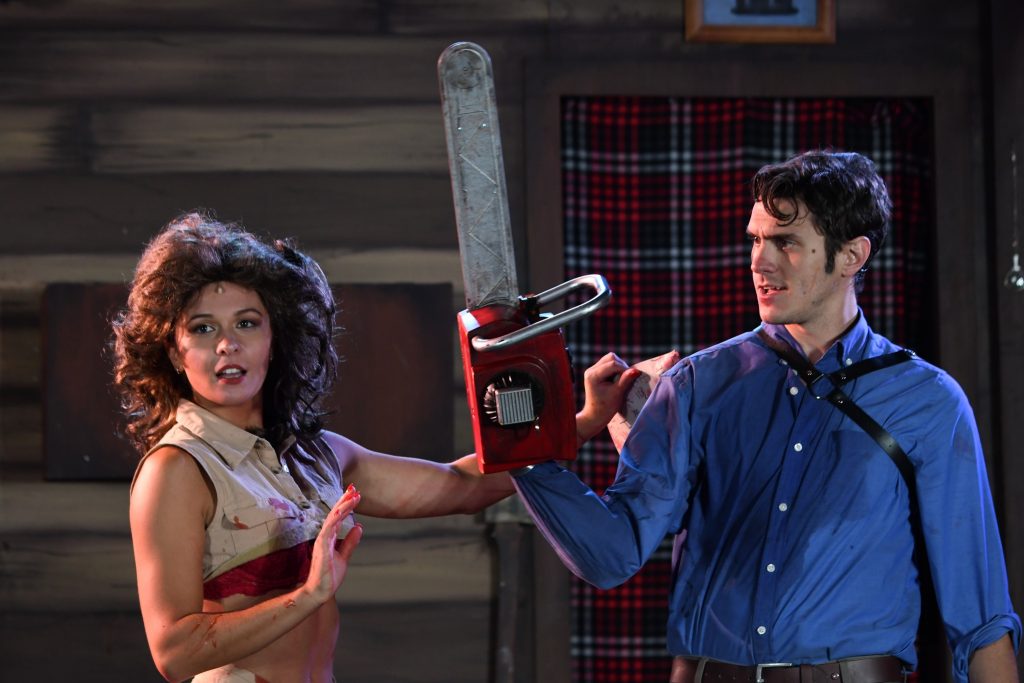
Cheryl is the first casualty of the Necronomicon, she goes full-on possessed zombie, but soon the others fall one-by-one to the satanic verses. Groaning zombies and groaner jokes along with some lively music sung by the Deadites, make the whole evening joyful fun! It’s a Dead Man’s Party, leave your body and your willing suspension of disbelief at the door.
P.S. Things get ridiculous pretty fast. There’s a talking Moose head and evil trees, but, somehow, it all works.
The cast is playing it big and broad and it’s a barrel of bloody fun, singing and dancing their way to a gory end. There isn’t a weak link in the production.
Goodnack is a star. He is charismatic and charming as the buffoonish hero. The actor walks a high wire of high camp in this tongue-in-cheek performance. The character isn’t subtle, but the actor manages to play him as real as he possibly can.
The audience went wild every time Goodnack uttered a line of dialogue from the original movies, parsing out classic lines such as “Good? Bad? I’m the guy with the gun!,” “Gimme some sugar, baby!,” “This is my boom stick!,” and “Hail to the king, baby!”
Most of Ash’s dialogue is punctuated with exclamation points.
Farrell gets a lion’s share of laughs in the first act, but fans of the film know he won’t be around forever. He makes great use of his stage time.
Miles is terrific in both roles of bimbo Shelly and brainier Annie. Barletta shines as the demonic version of Cheryl, dishing out devilish puns.
Things get meta when Fedore’s Ed sings a song about being an extra with little-to-no dialogue, until he gets this number, “Bit-Part Demon,” Evil Dead’s version of “Cellophane Man.”
Director Nick Mitchell (a former ‘Burgh Vivant contributor) sets a furious pace to George Reinblatt’s homage to the low-budget camp horror film. Under Mitchell’s skillful direction, there is never a dull moment. There are, however, buckets of blood, which may-or-may-not be Cherry Kool-Aid.
Because of sexual situations, strong language and violence, “Evil Dead – the Musical” may not be suited for little boos and ghouls. If you do take them, make sure they wear their ponchos, or you will be doing your Lady Macbeth impersonation in the laundry room.
-MB
“Evil Dead – The Musical” runs until October 22 at Pittsburgh Musical Theater’s West End Canopy. For more information, tickets and directions, click here: https://pittsburghmusicals.com/season














